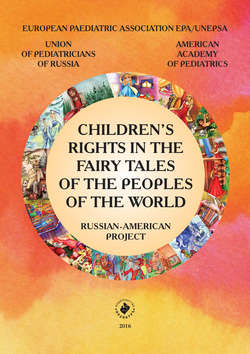Читать книгу Children’s rights in the fairy tales of the peoples of the world. Russian-American project - Коллектив авторов - Страница 5
Part I
Russian Folk Tale. The Snow Maiden
ОглавлениеAn old man and an old woman hadn’t had children for a very long time. They had been waiting for decades. One winter the old man and the old woman sculpted a girl from snow. She turned out to be beautiful and slim, just like a living one. The old man and the old woman desperately wanted this girl to be their daughter! So they started thinking of a name for her. They thought and thought and finally called the girl The Snow Maiden. Just as they named her, the girl came to life. She walked to the old man and the old woman, embraced and kissed them. The old people were very glad, and they took the girl home. The Snow Maiden enjoyed her life with the old people a lot. They surrounded her with sincere affection and care, and she answered them with love and diligence. The Snow Maiden did housekeeping, embroidered, she spun and cooked. The Snow Maiden was mild, modest and bashful. Other girls rarely managed to take her out with them.
At the end of winter the Russian people usually celebrate Maslenitsa, when they say goodbye to the hard frost. All girls are clothed in colorful dresses and gather around a bonfire at a high hillock to sing and dance in a ring. The Snow Maiden agreed to come to the bonfire. She jumped over the fire with the other girls – and melted because of the strong heat.
Article 2. States Parties shall respect and ensure the rights set forth in the present Convention to each child within their jurisdiction without discrimination of any kind, irrespective of the child's or his or her parent's or legal guardian's race, colour, sex, language, religion, political or other opinion, national, ethnic or social origin, property, disability, birth or other status.
States Parties shall take all appropriate measures to ensure that the child is protected against all forms of discrimination or punishment on the basis of the status, activities, expressed opinions, or beliefs of the child's parents, legal guardians, or family members.
THE SOCIETY VALUES EVERY CHILD
